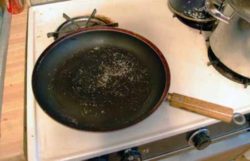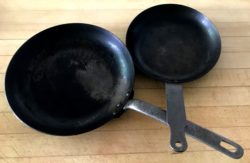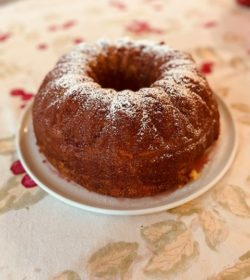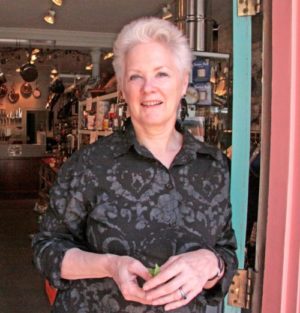Read Time: 6 Minutes Subscribe & Share
Your Friendly Reminder
 I have close friends whose only reason to subscribe to HBO is to watch John Oliver’s programs. His almost apocalyptical humor is laced with fact-based anger, and he sometimes offers unusual and funny solutions (purchasing websites to harass wrongdoers is one). And, since I don’t have a subscription to HBO, it was The Guardian, a leading British newspaper in investigative reporting, that brought this particular broadcast to my attention. Oliver’s segment paints in dramatic detail the reason we all have PFOAs in our blood. (PFOA is a blessedly brief abbreviation for perfluorooctanoic acid, a man-made chemical found in products that resist sticking, heat, water, stains, and grease.) A previous KD post highlighted a brilliant film on Robert Bilotts’s legal battle with DuPont, which to my knowledge may still be ongoing, stemming from health and environmental concerns about their products. Even though some of Oliver’s rants veer into particularly British scatological fantasies, in which we are occasionally treated to an especially laser-sharp meme, on this issue he, once more, is unerring in his comic rage.
I have close friends whose only reason to subscribe to HBO is to watch John Oliver’s programs. His almost apocalyptical humor is laced with fact-based anger, and he sometimes offers unusual and funny solutions (purchasing websites to harass wrongdoers is one). And, since I don’t have a subscription to HBO, it was The Guardian, a leading British newspaper in investigative reporting, that brought this particular broadcast to my attention. Oliver’s segment paints in dramatic detail the reason we all have PFOAs in our blood. (PFOA is a blessedly brief abbreviation for perfluorooctanoic acid, a man-made chemical found in products that resist sticking, heat, water, stains, and grease.) A previous KD post highlighted a brilliant film on Robert Bilotts’s legal battle with DuPont, which to my knowledge may still be ongoing, stemming from health and environmental concerns about their products. Even though some of Oliver’s rants veer into particularly British scatological fantasies, in which we are occasionally treated to an especially laser-sharp meme, on this issue he, once more, is unerring in his comic rage.
We Have Been Gaslighted
John Oliver credits some of his material from Nathaniel Rich’s article in The New York Times to remind us that we have been gaslighted for decades on the dangers of non-stick chemicals and how the companies who produce them have successfully evaded government intervention. Take the time to read his stellar article here. The film, Dark Waters, produced by Mark Ruffalo (he also played the lawyer Nathaniel Rich featured in his piece), should have stopped people from dumping a non-stick cookware set in their shopping carts. But no, that has not happened. We have been gaslighted by the industry; by the professional chefs who get paid to promote these finishes on the pans we use; and ultimately by many who write recipes in books, sites, magazines and blogs that unwittingly include this instruction.
on the dangers of non-stick chemicals and how the companies who produce them have successfully evaded government intervention. Take the time to read his stellar article here. The film, Dark Waters, produced by Mark Ruffalo (he also played the lawyer Nathaniel Rich featured in his piece), should have stopped people from dumping a non-stick cookware set in their shopping carts. But no, that has not happened. We have been gaslighted by the industry; by the professional chefs who get paid to promote these finishes on the pans we use; and ultimately by many who write recipes in books, sites, magazines and blogs that unwittingly include this instruction.
“In A Nonstick Pan”
Think about it in terms of your own cooking, the recipes you follow, where the writer blithely tells you “…using a non-stick pan…” It is part of our vocabulary, as well as a part of our landfills. You don’t give it a second thought, even though you probably have had to trash several scarred utensils after much of the finish scrapes off. Then it’s off to get a replacement, probably after some research from serious cooking websites that have long discussions on the merits of the efficacy of these chemical surfaces Somewhere in the fine print, the manufacturer may offer this piece of questionable advice, that it is safe if you don’t scrape up the coating with metal or use only medium heat. Some even advise you to dispose of the pan if you see the finish peeling off. Any genuine cook knows this is hooey. Plastic utensils rarely do an adequate job, and just a cursory look through YouTube videos confirms that pretty much no-one cooks with just medium heat, even in a nonstick fry pan.
Canaries
In fact, a report on nonstick pan testing by ecocenter.org revealed the purposeful mislabeling of the safety of these pans. PTFE coatings were long ago revealed to be unstable compounds that remain indefinitely in our soil, water and bodies. And it is not so much the not-forever finish on the pan, it is rather the chemical composition that never disappears. You may not be affected if you follow all the strictures set out by the manufacturer, but the populations whose homes are near these particular factories or contaminated groundwater and even downstream from a chemcial waste dump, might not be so lucky. These folks and their families are the canaries in the mine.
Time-Tested Alternatives
 Rather than disposing of your nonstick pans after the recommended five years of supposed use over moderate heat, as advised by an article in the Milwaukee Journal Sentinel, why not invest in some sturdy alternatives that for for the most part can be passed on to the next generation and don’t contribute to a worldwide contamination of the human blood system. It was a shock to find out that the only “clean” blood for a PFOA test was from a plasma archive dating from the Korean War.
Rather than disposing of your nonstick pans after the recommended five years of supposed use over moderate heat, as advised by an article in the Milwaukee Journal Sentinel, why not invest in some sturdy alternatives that for for the most part can be passed on to the next generation and don’t contribute to a worldwide contamination of the human blood system. It was a shock to find out that the only “clean” blood for a PFOA test was from a plasma archive dating from the Korean War.
For instance, a cast iron pan or carbon steel one is superior (most of them have a starter “seasoned” finish that you have to maintain throughout the years.) A quality enameled iron casserole, or stew pot, while not the optimum choice for browning, (they are still better at browning than nonstick surfaces) are wonderful for just about anything else -perhaps not as long-lasting as their all-metal counterparts because enamel can crack and chip. (I am moderately famous for my casual abuse of kitchens and cookware, and even my best efforts have yet to inflict only minor damage.) An investment in a good gauge copper pan, or in heavy-gauge aluminum (some have stainless lining on the cooking surface) are fantastic heat conductors, and once heated, leave other cooking vessels in the dust. Aluminum is softer than copper, so it will get dinged more easily. Even the multi-ply stainless steel pans (usually with an aluminum layer for better heat conduction) are superior to the repeated purchase of nonstick pans.
them have a starter “seasoned” finish that you have to maintain throughout the years.) A quality enameled iron casserole, or stew pot, while not the optimum choice for browning, (they are still better at browning than nonstick surfaces) are wonderful for just about anything else -perhaps not as long-lasting as their all-metal counterparts because enamel can crack and chip. (I am moderately famous for my casual abuse of kitchens and cookware, and even my best efforts have yet to inflict only minor damage.) An investment in a good gauge copper pan, or in heavy-gauge aluminum (some have stainless lining on the cooking surface) are fantastic heat conductors, and once heated, leave other cooking vessels in the dust. Aluminum is softer than copper, so it will get dinged more easily. Even the multi-ply stainless steel pans (usually with an aluminum layer for better heat conduction) are superior to the repeated purchase of nonstick pans.
 Nonstick bakeware has long been a seductive sweet spot for cookware manufacturers, and it offers more of the same false assurance.
Nonstick bakeware has long been a seductive sweet spot for cookware manufacturers, and it offers more of the same false assurance.  Even with the coating, you are advised to grease and flour before baking. If you purchase a pan made with a decent heat-conducting metal, such as tinned steel, aluminum or copper (stainless steel is not one of them, in my experience) then with the same greasing and flouring, the release of the baked item is not a problem — plus you get a much nicer crust. I know, as I have baked in both. In these two images, you can see what I think is almost a sweaty surface on the pumpkin cake produced in a nonstick pan, rather than a golden crust on the other.
Even with the coating, you are advised to grease and flour before baking. If you purchase a pan made with a decent heat-conducting metal, such as tinned steel, aluminum or copper (stainless steel is not one of them, in my experience) then with the same greasing and flouring, the release of the baked item is not a problem — plus you get a much nicer crust. I know, as I have baked in both. In these two images, you can see what I think is almost a sweaty surface on the pumpkin cake produced in a nonstick pan, rather than a golden crust on the other.
As a hopeful coda to this massive public fraud, the grand old lady of journalism, The New York Times published this article after Oliver’s expose, which outlines just how Dupont and its related spinoffs have “used a charm front” lobbying, and outright legal chicanery to poison an untold number of people and destroy environments. Michael Regan, who fought for better control of chemical contamination in North Carolina, is now in the driver’s seat at the EPA and has started to untangle this overabundance of chemical compounds, which should be used only sparingly.
Non-stick Alternatives
These are two cookware suggestions without forever chemicals from Lodge and Mauviel at Amazon. Or shop our friends at de Buyer.

Kitchen Detail shares under the radar recipes, explores the art of cooking, the stories behind food, and the tools that bring it all together, while uncovering the social, political, and environmental truths that shape our culinary world.




Nancy, thank you for this info. I didn’t know but always suspected these truths. What about “ceramic” coatings? Thanks, Nancy Brossow
Hello Nancy,
Thank you for writing me on this topic. Sometimes the “ceramic” coatings can be simply more PR, but in other cases, there is an actual bonding of the chemical compounds to a harder compound to make the finish less susceptible to wearing off with use. I will do some research on this.
Nancy
Thank you Nancy. Very informative — Oliver is a favorite.
Hello Susan,
How nice to hear from you! And yes, John Oliver’s research on his topics is always spot on.
Nancy
It was good science and hard work by many at The Environmental Working Group that led the charge. They have published a new clean water guide with links to safe and effective water filters that protect us from what is already in our drinking water. https://www.ewg.org/tapwater/
Hello Nancy,
You are absolutely correct about the leadership of EWG. They have been a force for good on many fronts. I have been following them for a few years. It was on my list to write about what a unique group EWG is.
Nancy